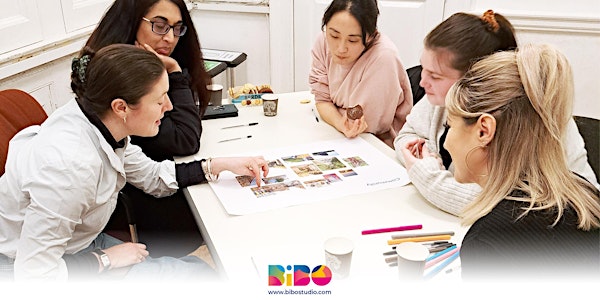
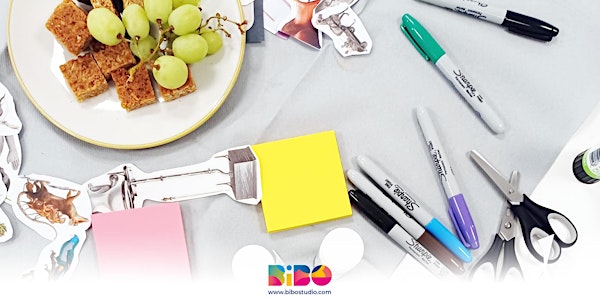
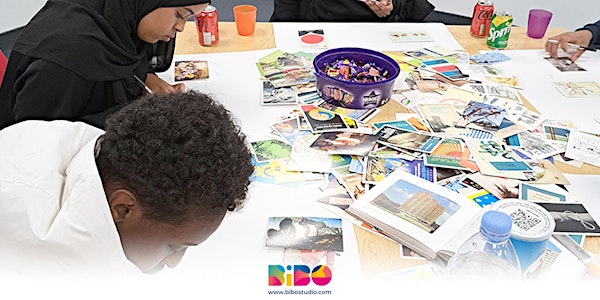

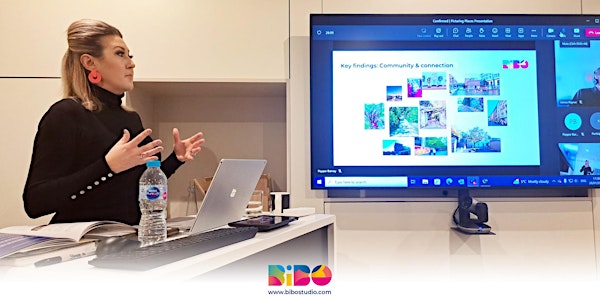
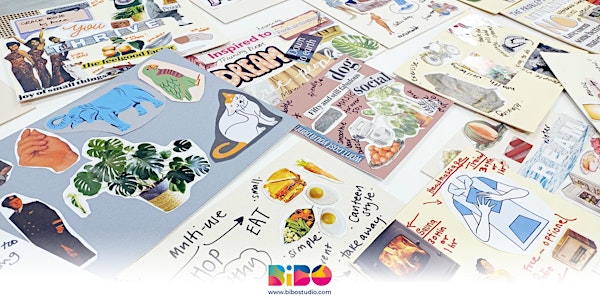
The Future of Your Workplace
A half-day demonstration and scoping workshop for organisations seeking to understand experiential qualities of their business.
Location
Refund Policy
Agenda
9:00 AM - 9:30 AM
Facilitator Arrives to Set-Up Venue
9:30 AM - 10:00 AM
Delegate Arrival/Registration
10:00 AM - 10:30 AM
Understanding Workplace Challenges through Visual Methods
Dr Harriet Shortt
10:30 AM - 11:00 AM
"Wellness at Work" - Staff Engagement Demonstration Workshop
11:15 AM - 11:45 AM
Delegate Refreshment Break
11:45 AM - 12:00 PM
Visual Analysis and Demonstration with Preliminary Findings + Q&A Session
About this event
Learn what really matters to your organisations biggest assets... its people, and its customers.
Contemporary working environments are often characterised by high levels of complexity, flexibility, and ambiguity, where developing shared understandings of how space is used and felt is key to employee well-being, belonging, and retention. Using visual methods is key to exploring these complexities in more depth and supports a more employee-focused, human-centric workplace strategy.
Recommended Attendees
This workshop is for anyone in a leadership role; for example, People, Transformation, HR, OD, and/ or Facilities and will demonstrate how they can use visual methods for workforce engagement.
About the Session
In this half-day session, up to 15 attendees will be introduced to Dr Harriet Shortt’s extensive experience working within organisations to better understand the broad influences of space and place on behaviour. Attendees will come away from the session learning abut the value of the visual – what it means to gather qualitative data and high-level insight using visual methods of engagement designed to illuminate the most important parts of your workplace culture. To deliver learning content in bite-sized chunks, the session is broken into four succinct parts:
1. A short verbal presentation introducing the history and potential of visual engagement methods
2. An interactive engagement workshop (see notes below)
3. A demonstration of visual data analysis
4. Q and A and group reflections
Following the session
It is anticipated that during the session you/ your organisation will encounter some areas of further interest and exploration. After the session, we will write to you with a record of the key findings from the demonstration, along with a recommendation on potential next steps for you/ your organisation, as well as a 1 hour follow-up telephone/ Zoom/ Teams consultation.
About Dr. Harriet Shortt
Dr Harriet Shortt has spent almost two decades as an academic researcher in the field of organisation studies. From small specialist teams to large public facing organisations, her methodological approach has helped business leaders find laser focus on critical issues and opportunities impacting key areas such as staff performance, retention, and customer experience.
Notes:
1. We have pre-selected a single format of visual engagement for the purposes of demonstration. There are numerous methods of visual engagement that can be employed; depending on staff demographics and desired outcomes, our full service would include a bespoke strategy to determine an appropriate method.
2. For the purposes of demonstrating an experiential concept within a functioning organisation, we have pre-selected “wellbeing” for this session. Typically our clients seek to understand different aspects of their organisation and our full service would include the development of a bespoke set of exploratory questions or themes.
3. To enable us to offer this workshop across a wide geography, this package excludes travel expenses and where relevant, modest overnight accommodation. We highly recommend this is a catered event for delegates and this cost is not included in our fee – this is something that can be discussed as part of your booking.